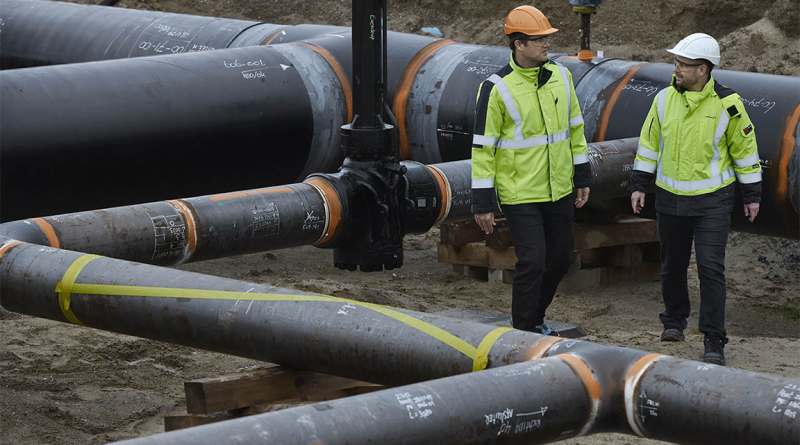How Energinet is Leading Denmark’s Green Energy Transition
Building a 100% Green Energy Future
With a vision of achieving a fully green energy supply, Energinet is responsible for owning, operating, and developing sustainable energy infrastructure across Denmark. As one of Europe’s most prominent contributors to a climate-neutral gas and electricity supply, the company focuses on ensuring reliability, sustainability, and open access for all users.
“For more than 18 years, Energinet has been a state-owned operator dedicated to sustainable energy,” explains Torben Brabo, Senior Vice President at Energinet. “Based in Denmark, we play a key role in shaping energy policies that support decarbonization and the expansion of renewable energy. Working closely with the government allows us to implement projects and policies faster than private-sector companies.”
Infrastructure for a Renewable Future
Energinet primarily functions as an Electricity and Gas Transmission System Operator (TSO) but also manages gas storage facilities and operates an extensive digital IT infrastructure. “Our IT systems enable advanced market design and guarantee the origin of all electricity, gas, and hydrogen,” Torben notes.
One of its latest assignments has been preparing two energy islands—one in the North Sea and the other in the Baltic Sea—to support the rapid expansion of offshore wind power. Staying aligned with its green strategy, the company currently produces over two-thirds of its electricity from renewable sources, with 30% of its gas supply also being sustainably generated. These figures are set to rise as Energinet continues to develop regional, bilateral, and European partnerships.
A Transparent and Data-Driven Approach
Energinet’s success is rooted in a strong commitment to sustainability and open collaboration. “Following the liberalization of the electricity and gas markets, Denmark’s market-oriented and environmentally focused parliament set the direction for how the TSO should operate,” Torben explains. “The decision was made for Energinet to function independently, separating us from previous commercial ownership and placing us under an independent supervisory board.”
This independence allows the company to develop energy infrastructure based on societal needs rather than profit. “We conduct social and economic welfare analyses to guide strategic development, ensuring alignment with EU regulatory frameworks and network planning,” Torben adds.
Energinet also promotes transparency by hosting open seminars on various energy development topics in close collaboration with industry stakeholders. This approach has made Denmark a global leader in the green transition.
Expanding Renewable Electricity and Gas
“In Denmark, renewable electricity has long been integrated into the energy system,” Torben says. “It goes beyond just wind and solar—we are exploring all sustainable production methods. Currently, two-thirds of our electricity is renewable, and by 2030, we will reach 100%.”
Denmark is also investing heavily in electrification, heat pumps, electric vehicles, and demand-side response systems. To manage the increasing variability of renewable energy production, Energinet operates an advanced digital IT network. Additionally, the company supplies renewable electricity to neighboring countries through interconnecting cables, with the most recent links connecting Denmark to the Netherlands and the UK.
“The gas sector is undergoing a transformation as well,” Torben adds. “With the decline of fossil fuels and natural gas, we are building infrastructure to support alternative gas sources. Denmark started producing biomethane a decade ago, and it now makes up 30% of our gas supply. By 2035, we expect to be 100% green with biogas alone.”
Meanwhile, the completion of the Baltic Pipe project is a major milestone for European energy security, transporting Norwegian gas to Poland, Ukraine, and other Central and Eastern European nations. “This project plays a crucial role in reducing coal dependency and enhancing gas supply security in the region,” Torben notes.
Hydrogen and the Future of Energy
Recognizing the growing importance of hydrogen, Energinet began conducting joint gas and electricity analyses six years ago. “We anticipated that these two systems would be key drivers of future energy production,” Torben explains. “Based on our findings, we now expect hydrogen to play a significant role in Denmark’s energy mix, with several gigawatts of electrolysis (PtX) and e-fuel production by 2030.”
As Energinet expands its portfolio, it is also exploring CO2 storage as part of its carbon-neutral energy strategy. “It’s about evaluating different scenarios and constructing the right infrastructure,” Torben says. “We are already successfully scaling renewable electricity production, tripling or even quadrupling output in some areas.”
Alongside large-scale energy projects, Denmark is witnessing a rise in decentralized energy sources, such as smaller wind farms and solar panel installations. “It’s about balancing large infrastructure projects with the growing number of localized energy systems,” Torben explains. “Historically, we’ve focused on large-scale infrastructure, but now we must integrate smaller-scale energy networks into the broader system.”
Sustainable Energy Ecosystem
The future of Energinet lies in optimizing and integrating all available renewable energy sources. “Our goal is to create a seamless coalition between centralized infrastructure and smaller energy production networks,” Torben concludes. “This approach will be key in shaping Denmark’s sustainable energy future.”
Energinet
